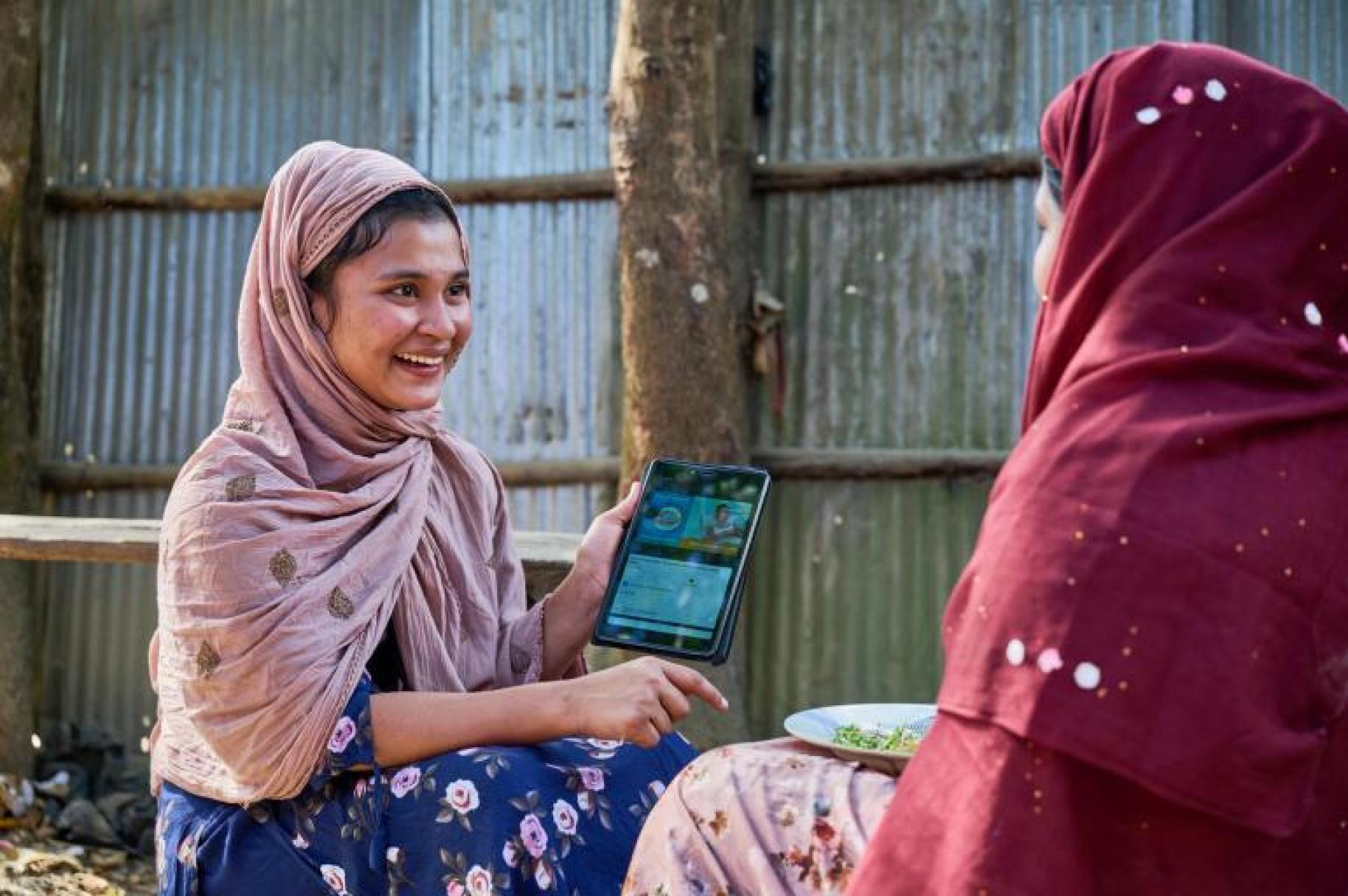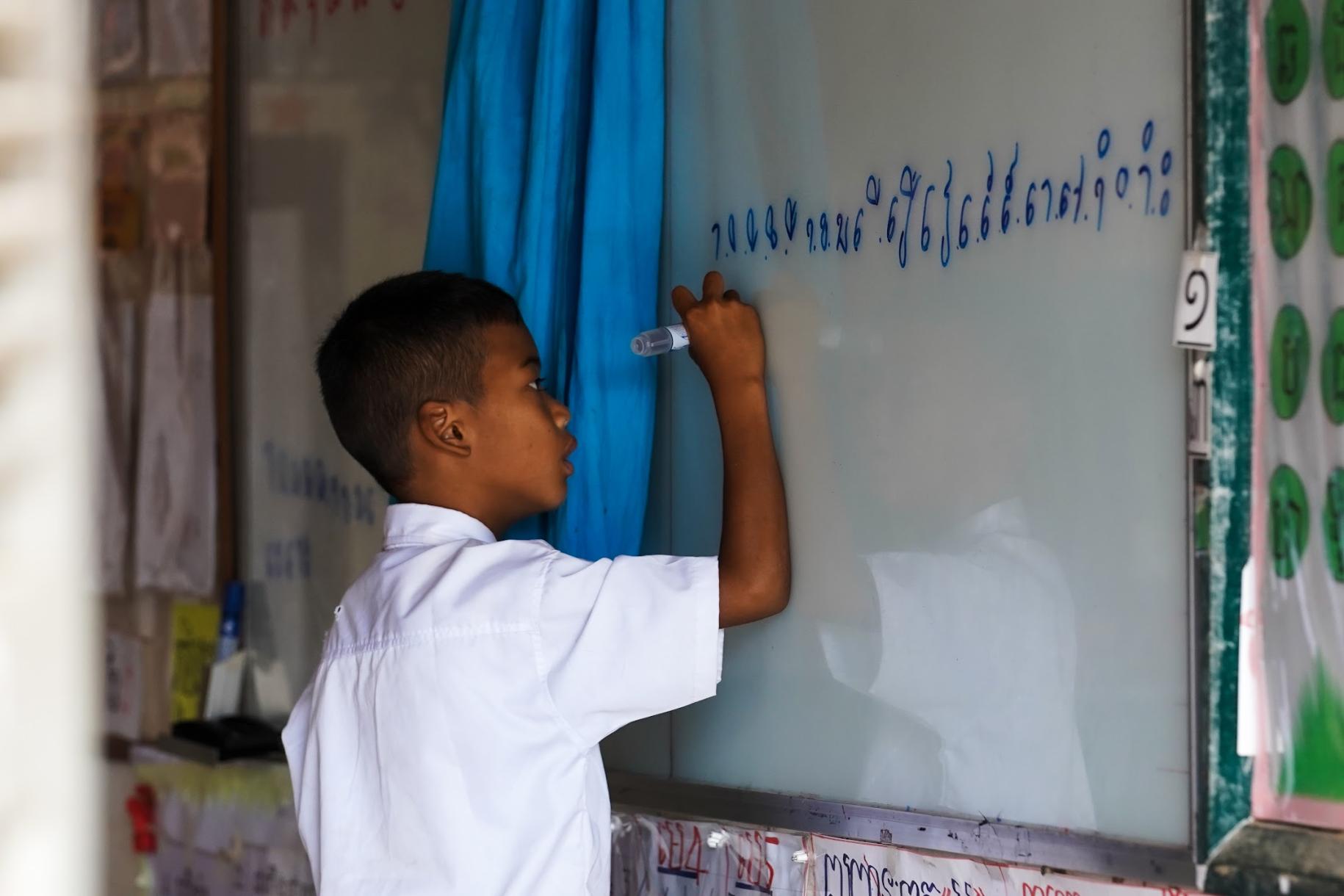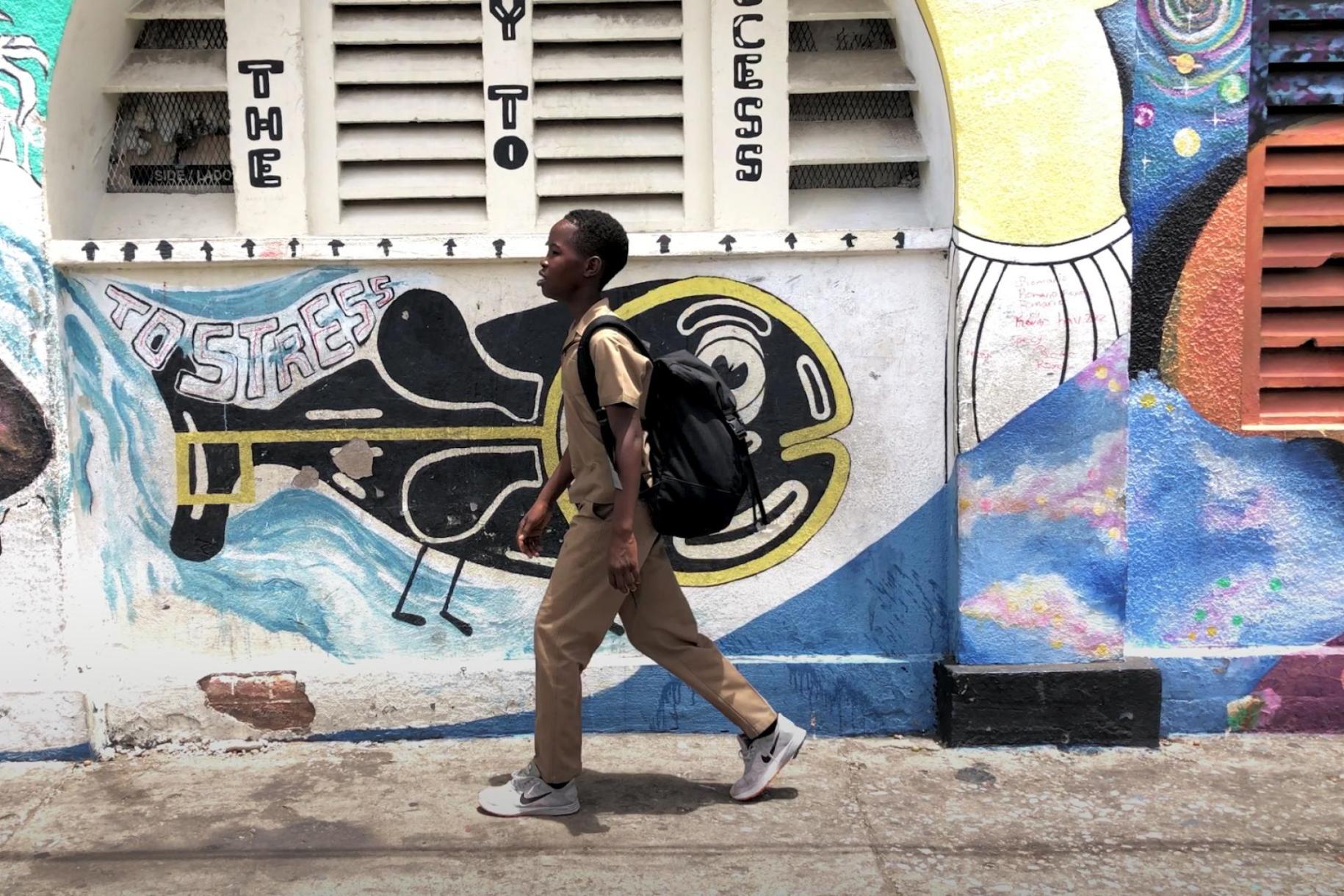Game-Changers: Making The Grade, Transforming Education by 2030
'Game-Changers’ is a new editorial series from the UN Development Coordination Office (DCO) on key transitions that the UN Secretary-General has called for, to advance progress towards the Sustainable Development Goals (SDGs), catalyzing a more sustainable and equitable future. This series explores the progress achieved since the adoption of the SDGs in 2015 in key areas and how the UN is supporting this progress. The world needs renewed ambition and action to deliver these Goals at scale.
From the remote islands of the Pacific to the forests of Latin America and the Caribbean, the make-shift classrooms in war-torn Ukraine, and refugee camps in northern Kenya, education is a stepping stone for sustainable development and enduring hope for a better future.
Ensuring inclusive and equitable quality education and lifelong learning opportunities for all has a snowballing effect on ending poverty, bringing decent work and jobs, boosting income and livelihoods, and safeguarding gender equality and women’s empowerment.
While the Millennium Development Goals focused on quantity targets (high enrollment rates), the SDGs represented world leaders’ first attempt to also focus on quality education and learning across levels, noting its transformative effect and impact across all other goals.

Where was the world in 2015?
When the SDGs were adopted in 2015:
- While primary school enrolment in developing countries stood at 91 per cent in 2015, 59 million children of primary school age remained out of school. Approximately 33 million of these children were girls.
- In conflict-affected countries, nearly 36 per cent of all children were out of school.
- Disparities were striking in adult learners too. About 757 million people globally could neither read nor write, with two-thirds being women.
Where are we in 2030 at half-time?
With the COVID-19 pandemic, the education sector globally took a significant hit.
- Nearly 1.5 billion children and youth globally were affected by school closures.
- As a result of the pandemic, nearly 70 per cent of ten-year-olds in low and lower-middle income countries are unable to read and understand a simple text.
- Today, globally, some 250 million children are out of school. Of this, about 64 million children of primary school age now remain out of school.
- Nearly half of all refugee children globally also lack access to education.
- Globally 763 million adults are illiterate and continue to get left behind.
By 2030 it is estimated that nearly 84 million children and young people will still be out of school.
The quality of education continues to be at risk. Studies show that in low-income countries, 26 per cent of primary school teachers and 39 per cent of secondary school teachers lack basic qualifications. Moreover, more than half of all children and adolescents, nearly 617 million globally, are failing to meet minimum proficiency standards in reading and mathematics, despite nearly two-thirds of them being enrolled in schools.
What does an inclusive education transition look like?
The 2022 Transforming Education Summit convened by the UN Secretary-General called for more urgent and escalated measures to deliver inclusive and quality education, particularly for girls, low-income students, students with disabilities or in the midst of crisis.
Schools need to become safe and nurturing spaces, free of discrimination and full of potential. Tackling the teacher shortage crisis, raising wages, incentivizing teachers’ qualifications and harnessing digital technology for good is critical to this.

Spotlight Country: Investing in Jamaica’s education sector
In Jamaica, the UN Team, under the leadership of the UN Resident Coordinator Dennis Zulu, is boosting the Government’s efforts to shape transformative education policies and programmes.
The United Nations Children’s Fund (UNICEF), in collaboration with the World Bank, conducted Jamaica’s first Public Expenditure Review on the education sector. This landmark analysis helped establish a baseline of public spending on education, considering whether this was adequate, efficient and equitable in the context of Jamaica’s national development priorities. Undertaken in 2021, the review found that bouncing back from the COVID-19 pandemic would demand significant investments. In response to this, authorities increased education budgets over 2021 and 2022. With the support of the Joint SDG Fund’, the Resident Coordinator’s Office (RCO) is also coordinating the implementation of recommendations from the Public Expenditure Review. Bringing together stakeholders and establishing partnerships with government, civil society, private sector and youth leaders, the RCO is championing Jamaica’s commitments to transform education.

Aligned to a 21st century classroom concept, the United Nations Educational, Scientific and Cultural Organization (UNESCO) has been strengthening teachers’ capacity in using digital platforms to provide blended (meaning using technology within teaching in the classroom) and distance learning opportunities, reaching over 7500 teachers in 2022 alone. In addition, efforts to support early childhood development initiatives and equip schools with online learning tools, technology, clean water, and consistent school feeding programmes are helping students and teachers across Jamaica.
Achieving inclusive and quality education will need radical and extensive efforts that match national policies with the right investments and innovations on the ground. Our collective future depends on it.
Learn more about other examples on what the UN is doing to support this transition:
Education Cannot Wait Interviews Resident Coordinator in Colombia I United Nations DCO (dco.un.org)













